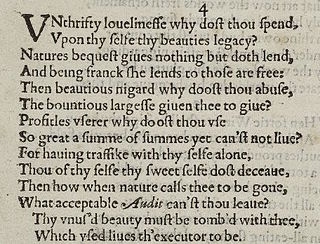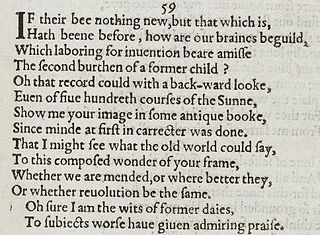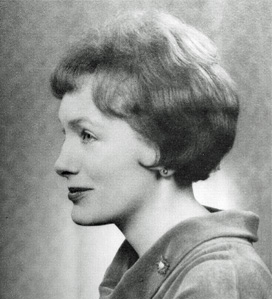Related Research Articles

Desiderius Erasmus Roterodamus was a Dutch Christian humanist, Catholic theologian, educationalist, satirist, and philosopher. Through his vast number of translations, books, essays, prayers and letters, he is considered one of the most influential thinkers of the Northern Renaissance and one of the major figures of Dutch and Western culture.

Sir Thomas More, venerated in the Catholic Church as Saint Thomas More, was an English lawyer, judge, social philosopher, author, statesman, amateur theologian, and noted Renaissance humanist. He also served Henry VIII as Lord High Chancellor of England from October 1529 to May 1532. He wrote Utopia, published in 1516, which describes the political system of an imaginary island state.
Reinhard Bendix was a German-American sociologist.

The English Renaissance was a cultural and artistic movement in England during the late 15th, 16th and early 17th centuries. It is associated with the pan-European Renaissance that is usually regarded as beginning in Italy in the late 14th century. As in most of the rest of Northern Europe, England saw little of these developments until more than a century later within the Northern Renaissance. Renaissance style and ideas were slow to penetrate England, and the Elizabethan era in the second half of the 16th century is usually regarded as the height of the English Renaissance. Many scholars see its beginnings in the early 16th century during the reign of Henry VIII. Others argue the Renaissance was already present in England in the late 15th century.

During the Renaissance, great advances occurred in geography, astronomy, chemistry, physics, mathematics, manufacturing, anatomy and engineering. The collection of ancient scientific texts began in earnest at the start of the 15th century and continued up to the Fall of Constantinople in 1453, and the invention of printing allowed a faster propagation of new ideas. Nevertheless, some have seen the Renaissance, at least in its initial period, as one of scientific backwardness. Historians like George Sarton and Lynn Thorndike criticized how the Renaissance affected science, arguing that progress was slowed for some amount of time. Humanists favored human-centered subjects like politics and history over study of natural philosophy or applied mathematics. More recently, however, scholars have acknowledged the positive influence of the Renaissance on mathematics and science, pointing to factors like the rediscovery of lost or obscure texts and the increased emphasis on the study of language and the correct reading of texts.

Sonnet 4 is one of 154 sonnets written by the English playwright and poet William Shakespeare. It is a procreation sonnet within the Fair Youth sequence.

Sonnet 59 is one of 154 sonnets written by the English playwright and poet William Shakespeare. It's a part of the Fair Youth sequence, in which the poet expresses his love towards a young man.

Africa is an epic poem in Latin hexameters by the 14th century Italian poet Petrarch. It tells the story of the Second Punic War, in which the Carthaginian general Hannibal invaded Italy, but Roman forces were eventually victorious after an invasion of north Africa led by Scipio Africanus, the poem's hero. Noteworthy passages include the death of Hannibal's brother Mago Barca, the description of Syphax's palace, and the tragic love story of Sophonisba.
Neoplatonism was a major influence on Christian theology throughout Late Antiquity and the Middle Ages in the East, and sometimes in the West as well. In the East, major Greek Fathers like Basil, Gregory of Nyssa and Gregory of Nazianzus were influenced by Platonism and Neoplatonism, but also Stoicism often leading towards asceticism and harsh treatment of the body, for example stylite asceticism. In the West, St. Augustine of Hippo was influenced by the early Neoplatonists Plotinus and Porphyry. Later on, in the East, the works of the Christian writer Pseudo-Dionysius the Areopagite, who was influenced by later Neoplatonists such as Proclus and Damascius, became a critical work on which Greek church fathers based their theology, like Maximus believing it was an original work of Dionysius the Areopagite.

Clarence H. Miller born in Kansas City, Missouri was an American professor emeritus of English at Saint Louis University. He is best known for major contributions to the study of Renaissance literature, and creating the classic translations from Latin of Saint Thomas More's 1516 book Utopia, and Erasmus's 1509 The Praise of Folly. Utopia is considered one of the most important works of European humanism. Miller was also Executive Editor of the Yale University Thomas More variorum project, which produced, over a period of decades, the 15-volume Yale Edition of the Complete Works of St. Thomas More.
A Vedic Word Concordance is a multi-volume concordance of the corpus of Vedic Sanskrit texts. It has been under preparation from 1930 and was published in 1935–1965 under the guidance of Viśvabandhu Śāstrī (1897–1973), with an introduction in Sanskrit and English. It aims to be "a universal vocabulary register" of "Vedic works, with complete textual reference and critical commentary bearing on phonology, accent, etymo-morphology, grammar, metre, text-criticism, and Ur-Aryan philology".

Thomas Nixon Carver was an American economics professor.
"The quality of mercy" is a speech given by Portia in William Shakespeare's The Merchant of Venice. In the speech, Portia, disguised as a lawyer, begs Shylock to show mercy to Antonio. The speech extols the power of mercy, "an attribute to God Himself".
Pamela Askew was an American art historian who wrote influential works on Domenico Fetti and Caravaggio.
Dorcas Martin (1537–1599) née Eccleston, Ecclestone or Eglestone was an English bookseller and translator.

Constance Bartlett Hieatt was an American scholar with a broad interest in medieval languages and literatures, including Old Norse literature, Anglo-Saxon prosody and literature, and Middle English language, literature, and culture. She was an editor and translator of Karlamagnús saga, of Beowulf, and a scholar of Geoffrey Chaucer. She was particularly known as one of the world's foremost experts in English medieval cooking and cookbooks, and authored and co-authored a number of important books considered essential publications in the field.
Erik Doxtader is a scholar of rhetoric and critical theory. Born in Fort Collins, Colorado, Doxtader took a BA at the University of Kansas and both an MA and Ph.D. from the Department of Communication Studies at Northwestern University.
Marcia Hall, who usually publishes as Marcia B. Hall, is an American art historian, who is the Laura H. Carnell Professor of Renaissance Art at the Tyler School of Art and Architecture of Temple University in Philadelphia. Hall's scholarship has concentrated on Italian Renaissance painting, mostly of the sixteenth century, and especially Raphael and Michelangelo.
Jennifer Speake, néeDrake-Brockman is a Canadian-British freelance writer and editor of reference books.
This is a select annotated bibliography of scholarly English language books and journal articles about the subject of genocide studies; for bibliographies of genocidal acts or events, please see the See also section for individual articles. A brief selection of English translations of primary sources is included for items related to the development of genocide studies. Book entries may have references to journal articles and reviews as annotations. Additional bibliographies can be found in many of the book-length works listed below; see Further Reading for several book and chapter-length bibliographies. The External links section contains entries for publicly available materials on the development of genocide studies.
References
- ↑ "The Essential Works of Thomas More".
- 1 2 "University of St. Thomas School of Law dedicates statue of St. Thomas More". Minnesota Lawyer. 2005-02-15.
- ↑ "The Center for Thomas More Studies". www.thomasmorestudies.org.
- ↑ See http://www.thomasmorestudies.org/publications.html Archived 2011-09-25 at the Wayback Machine .
- ↑ Mehan, Matthew (2005-08-25). "Getting to Know Thomas More: A more seasoned Man for All Seasons". National Review . Archived from the original on January 12, 2007. Retrieved 2009-05-04.
- ↑ Keen, Ralph (Spring 1997). "Rev. of Wegemer, Thomas More on Statesmanship". The Sixteenth Century Journal. 28 (1): 219–20. doi:10.2307/2543253. JSTOR 2543253.
- ↑ Marius, Richard; Wegemer, Gerard B. (Summer 1997). "Rev. of Wegemer, Thomas More on Statesmanship". Albion: A Quarterly Journal Concerned with British Studies . 29 (2). The North American Conference on British Studies: 282–83. doi:10.2307/4051822. JSTOR 4051822.
- ↑ Bouldin, Wood; Wegemer, Gerard B. (Autumn 1998). "Rev. of Wegemer, Thomas More on Statesmanship". Renaissance Quarterly . 51 (3). Renaissance Society of America: 1020–21. doi:10.2307/2901794. JSTOR 2901794.
- ↑ "Wegemer is to be congratulated for directing our attention to the need to study More's writings with the subtlety and care they deserve; for showing that More's thoughts and actions reflect a coherence worthy of serious attention; and for reminding us that true statesmanship is measured by the ability to apply consistent principles to the ever changing circumstances of political life." Nendza, James (Spring 1998). "Review: Reason, Rhetoric, and Law". The Review of Politics. 60 (2): 385–87. doi:10.1017/s0034670500041334.
- ↑ "An associate professor of English at the University of Dallas and a More scholar, Gerard Wegemer achieves an easy and precise style. His narrative is excellent, especially in the trialand martyrdom. He makes More's English easy for the modern reader by editing sentences to conform somewhat to contemporary usage. All quotations are fully referenced, however, and there is a good bibliography." Loughran, Hugh (Dec 2000). "Rev. of Gerard Wegemer, Thomas More: A Portrait of Courage". Catholic Insight. 8 (10).